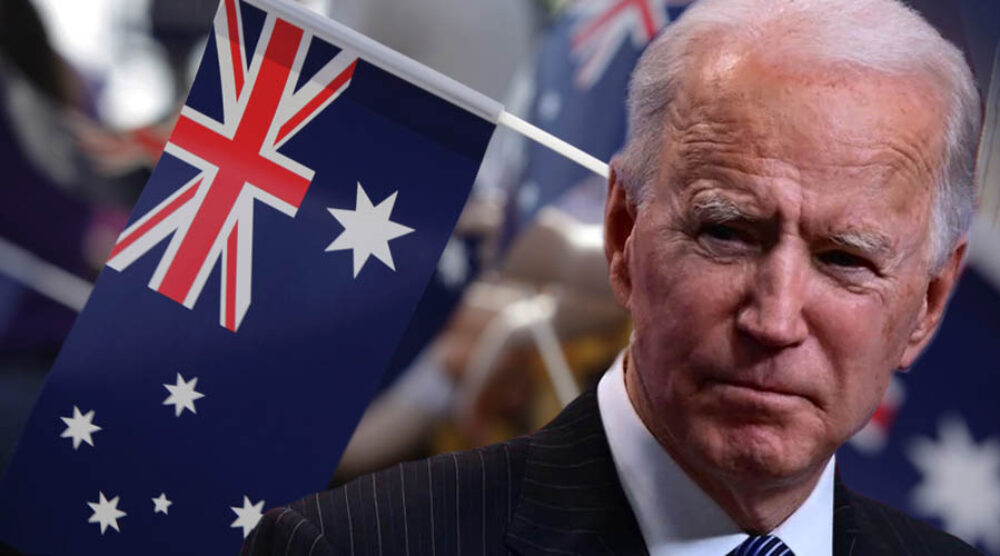IAN HALL |
It is safe to say that the election of Joseph R. Biden Jr. was greeted with great sighs of relief in Canberra, at least in the bureaucracy. To be sure, the incoming administration faces huge challenges: the COVID-19 pandemic, a stuttering economy, a battered political system undermined by four years of deceit and disinformation, and a set of foreign policy problems without obvious solutions. But there are good reasons to think that Biden and his team will tackle these with expertise and professionalism, restoring a degree of stability and predictability to policymaking and implementation which will be appreciated in Australia and elsewhere in the region.
All this said, it must be observed that the shape of the Biden administration’s Indo-Pacific strategy – a matter of paramount importance to Canberra – is not yet completely clear.
The Democrats are divided about how best to manage China’s assertiveness in the region and intensifying hostility towards the United States.
As Thomas Wright notes, some favour open but calibrated competition with Beijing to prevent it from establishing an exclusive sphere of influence and to maintain an economic, political, technological, and military advantage over China. Others would prefer a return to the ‘cautious and incrementalist’ approach taken under President Barack H. Obama, reversing punitive measures imposed by the Trump administration concerning trade, intellectual property, and human rights. Finally, a third group favours a more radical alternative: the scaling back of US military commitments in the Indo-Pacific, which they think the root cause of Beijing’s hostility, and the pursuit of a new diplomatic bargain with China, encompassing – among other things – the status of Taiwan.
It is likely, however, if not certain, that the Biden administration will adopt the first approach. Anthony Blinken, the nominee for the position of Secretary of State, Jake Sullivan, the incoming National Security Advisor, and Kurt Campbell, the new Indo-Pacific Coordinator, have backed versions of what Wright terms ‘responsible competition’ with Beijing. So too have Laura Rosenberger, the incoming senior director for China at the National Security Council, and Ely Ratner, who will take up a parallel role at the Pentagon.
The strategy favoured by this group will build upon those adopted by the Obama and Trump administrations, with some key changes. Like its immediate predecessor, the Biden team conceives China as a ‘global competitor’, as Lloyd Austin, the former General who will be the next Secretary of Defense, calls it. The administration will look carefully at whether the US has the right mix of military forces in the right areas to deter adventurism in the region. As Janet Yellen, the pick for Treasury Secretary has signalled, it will also push back on China’s predatory trade practices, subsidies for state-owned enterprises, and theft of intellectual property, especially in high technology. And the Biden team will respond to Beijing’s assaults on human rights in Hong Kong and Xinjiang.
The new administration will depart from Trump’s Indo-Pacific strategy more in means than ends. It will, of course, tone down the anti-China rhetoric characteristic especially of Mike Pompeo’s stint at the State Department. It will work more closely and cooperatively with regional allies and partners, without the public threats the previous administration used to cajole them into spending more on defence or reducing their trade surpluses. It may maintain some or all of the tariffs and restrictions placed on Chinese goods and firms over the past four years, but it will recalibrate some of these measures, especially those presently doing harm to US producers. It will explore the possibility of negotiating some arrangement with a regional trade bloc, probably the Trans-Pacific Partnership. Finally, it is likely that the Biden administration will maintain and potentially extend sanctions on individuals and companies involved in repression within China, especially in Hong Kong and Xinjiang.
If sufficient Democrats unite around it, this approach – better thought-out, better coordinated, less strident and less prone to the whims of a capricious President – should be good for Australia. It should give Canberra space to implement the measures it needs to curb foreign influence operations and diversify Australia’s trade ties. It cannot stop Beijing from targeting Australia for punishment, but it should allow responses to be better coordinated with allies and partners. And it should allow Australia to transition towards the more assertive strategic posture it needs, as Beijing rapidly expands its navy to match its growing ambition.
This is not to say, of course, that Biden’s win will not cause some problems for the Australian government in 2021 or afterwards.
There will soon be a clash over climate policy, as the new administration’s so-called Climate Czar, John Kerry, pushes for multilateral action. This will pit Canberra against Washington, but also generate more division in Australia over our fraught relationship with China, given the dependence of coal and iron ore producers on that market and the strength of the mining lobby in the corridors of parliament and influential think tanks.
Professor Ian Hall is the Deputy Director, Research at the Griffith Asia Institute.








